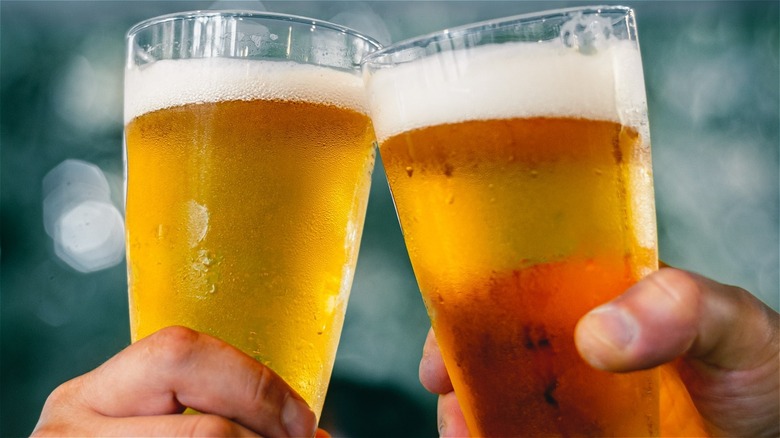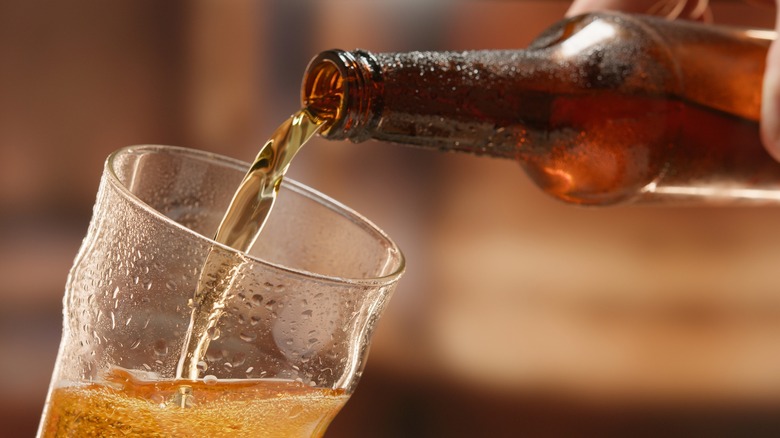Could An Inactive Volcano Lead To A Beer Shortage?
The words "beer shortage" are not words many people want to hear. Beer has been part of humanity for a long time and continues to be enjoyed by many different cultures and demographics. Sometime around 12,000 years ago, beer was created by accident, says food historian Tasha Marks. From then on, it became a staple in the diet of many cultures. In Egypt, for example, "it was consumed daily and in great quantities at religious festivals and celebrations," per British Museum.
Many years later, a festival for the marriage of the crown prince of Bavaria resulted in a yearly celebration that became known as Oktoberfest. Yet, while it originates in Germany and many people travel overseas to celebrate each year, German Foods reports that there are at least 150 celebrations happening around the United States. As most people know, the hero of the festival is usually the beer — lots of beer. Therefore, brewers around the country may be a little apprehensive once this season is over, as a challenging supply chain raises its ugly head yet again (per USA Today). It seems to be a frequent occurrence since COVID-19 hit our shores, but every now and then, a natural disaster makes supply worries worse.
What do volcanos and beer have in common?
While carbon dioxide is a natural occurrence in beer during the fermentation process, according to Beer and Brewing, additional CO2 is added in "keg, bottled, and canned beers." When producing beer in large volumes, this method — called forced carbonation — is "faster and more efficient," per CAC GAS & Instrumentation. This gas is usually outsourced, and supplies are running low. It's not just the beer industry that's impacted. Time reports that Tyson and Kraft Heinz use the gas in soda and when "freezing frozen meats and pizza." The result of this is not only a shortage of beer, but a hike in the price.
An extinct volcano in Mississippi, Jackson Dome, contains natural sources of CO2 where many supplies were coming from. Unfortunately, this source became contaminated and less food grade carbon dioxide became available. Gasworld points to Jackson Dome owner Denbury for the issue: "Contamination occurred when Denbury decided to use its existing CO2 supplies for enhanced oil recovery and drill additional wells to feed its CO2 pipeline that supplies merchant CO2 plants."
Bart Watson, chief economist for the Brewers Association told USA Today, "Individual producers may have issues, but this isn't so widespread that you're going to see empty beer shelves." However, he also said that the situation could contribute to ammonia plant closures, which is another large source of CO2.

